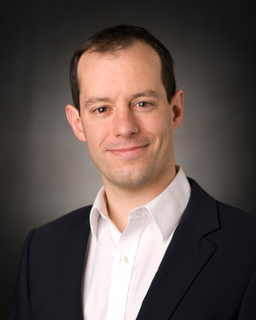Computer scientist Adam Smith wins 2017 Godel Prize
4/11/2017
UNIVERSITY PARK, Pa. — Adam Smith, a computer science and engineering professor for the School of Electrical Engineering and Computer Science at Penn State, has been awarded the 2017 Gödel Prize for his 2006 paper, “Calibrating noise to sensitivity in private data analysis,” which introduced the concept of differential privacy. Smith shares the award with co-authors Cynthia Dwork, Frank McSherry and Kobi Nissim.
The Gödel Prize is an annual prize for outstanding papers in the area of theoretical computer science, given by both the Association for Computing Machinery and the European Association for Theoretical Computer Science. It includes an award of $5,000, and is named after Kurt Gödel, whose work has had immense impact upon scientific and philosophical thinking in the 20th century. The award will be presented this summer in Montreal at the 49th annual ACM Symposium on the Theory of Computing.
According to Smith, the paper started a large and growing area of research on differentially private algorithms, which allow one to analyze a sensitive data set while preserving the privacy of the individuals whose data it contains. It was a major breakthrough in privacy protection and introduced both a new conceptual framework and a set of techniques that help organizations like Apple and Google to aggregate information about their users’ behavior while ensuring that the raw information is never collected or stored.
“I was thrilled to receive the award. It is a great honor, and a sign of how widely differential privacy has influenced computer science and even other fields,” Smith said. “It’s also a great reminder of the vibrant scientific community I’m a part of. The paper was written by just four people, but its impact is really due to the dozens of dedicated colleagues whose work we built on and who built on our work. All in all, it is a wonderful feeling.”
Smith studies cryptography and information privacy and their connection to such diverse fields as quantum mechanics, combinatorics, information theory and statistics. He looks at preserving privacy in the publication of statistical data, cryptography based on noisy secrets and quantum cryptography.
He received his doctorate from MIT in 2004 and has held visiting positions at the Weizmann Institute of Science, UCLA, Boston University and Harvard. In 2009, he received a Presidential Early Career Award for Scientists and Engineers (PECASE). In 2016, he received a Theory of Cryptography Test of Time award.




